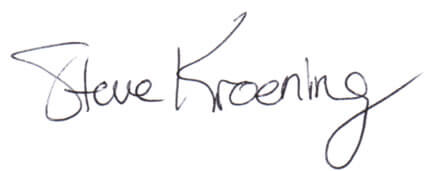
Have you ever noticed how some people can eat a diet filled with processed and high-sodium food, never exercise, drink lots of coffee, and live a highly stressful life, but never suffer from high blood pressure? While other people simply eat
a little too much salt or fat and their blood pressure jumps up almost immediately. A lot of people will tell you this is the difference between good genes and bad genes. I'm not so sure.
It's obvious genes play a role in your health. There's no doubt about that. But more and more evidence discovered in the last 10 years has shown that you can impact your genes simply by making your cells healthy. So is it genes that cause
unhealthy cells — or unhealthy cells that cause bad genes? For years, science has believed the former to be true. But now it's starting to show that the latter is true.
That's great news if you have high blood pressure. It means you might be able to overcome a genetic predisposition to the problem simply by getting your cells as healthy as you can. And that's where a new study out of Korea comes in.
In this study, researchers gave rats Ecklonia cava, which is a brown algae found in oceans around the world. The researchers knew that Ecklonia cava "has antioxidative, anticoagulant, and antiviral effects." But they wanted
to see if the brown algae could reduce blood pressure.
Continued Below...
Have These Deep-Sea Diving Grandmothers Found The Fountain Of Youth?
They dive 65 feet underwater... hold their breath for minutes... and bring up treasures from the sea. And some of them are over 70 years old!
Click Here To Learn More
They found that the Ecklonia cava was a powerful ACE inhibitor. As you may know, many of the popular hypertension drugs are ACE inhibitors — that is, they inhibit the angiotensin-converting enzyme, which constricts blood
vessels and increases blood pressure. Your genetic code is highly active in programming your body's use of ACE.
Just how powerful was the algae's ability to inhibit ACE? It reduced the rats' serum ACE activity by 19% using 50 mg/kg of Ecklonia cava. And it decreased their systolic blood pressure by 15%. That's a huge drop in blood pressure!
If your systolic (top number) blood pressure is 140, a 15% drop brings it down to 119 and into the normal range. So this is a significant finding.
We already knew how effective Ecklonia cava was for fighting infection. But this study takes it into a completely different realm. I suspect the reason is because Ecklonia cava is so good for your cells.
Now that we know it can help you drop your blood pressure, it's definitely a nutrient you should be taking every day. Even if you don't have high blood pressure, brown algae can help keep your vascular system healthy. So it's a nutrient everyone
should be taking.
The optimum human dose for Ecklonia cava is 800 mg. If you have high blood pressure, you can safely double that dose until your pressure comes down. Then continue to take 800 mg daily indefinitely. You can order Ecklonia cava in Advanced Bionutritionals Alginol.
Your insider for better health,

Steve Kroening

Steve Kroening is the editor of Nutrient Insider, a twice-a-week email newsletter that brings you the latest healing breakthroughs from the world of nutrition and dietary supplements. For over 20 years, Steve has worked hand-in-hand
with some of the nation's top doctors, including Drs. Robert Rowen, Frank Shallenberger, Nan Fuchs, William Campbell Douglass, and best-selling author James Balch. Steve is the author of the book Practical Guide to Home Remedies.
As a health journalist, Steve's articles have appeared in countless magazines, blogs, and websites.
Source:
http://jprenew.com/wp-content/uploads/2013/02/Antihypertensive_Effect_of_ECE_-_Hong_2006.pdf